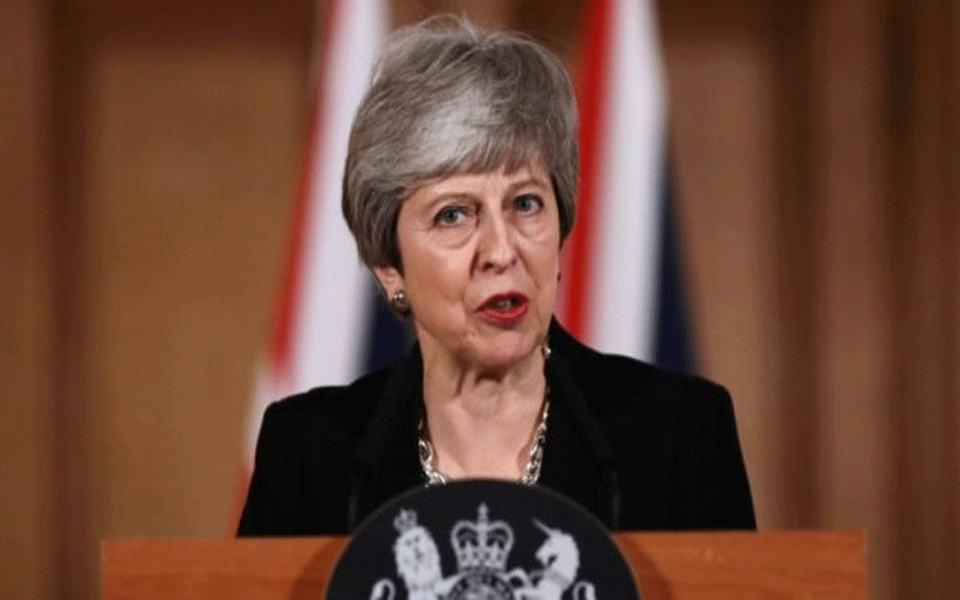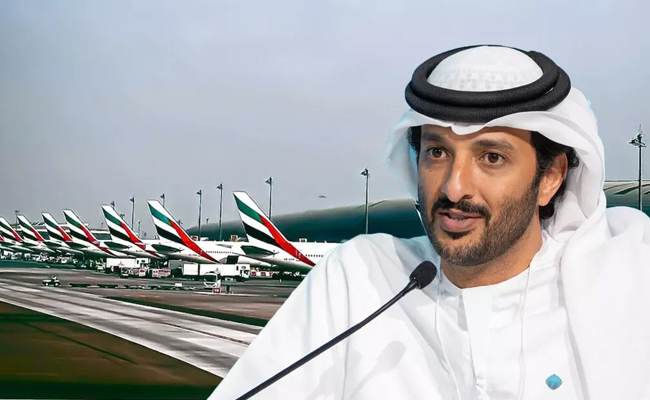London: British Prime Minister Theresa May on Monday started a last-minute flurry of European diplomacy that includes visits to Paris and Berlin as she prepares for a make-or-break Brexit summit.
Still struggling to get her EU divorce deal through parliament, May is hoping European leaders will agree on Wednesday to delay Brexit for a second time to stop Britain crashing out of the bloc two days later.
After putting her request in a letter to European Council president Donald Tusk last week, she had phone calls on Monday with him and European Commission chief Jean-Claude Juncker.
May is also visit German Chancellor Angela Merkel and French President Emmanuel Macron on Tuesday, in what her spokeswoman said was an attempt to set out "the rationale" for a further short delay.
Faced with political deadlock in London, the EU agreed last month to postpone Brexit from March 29 to April 12, and May will ask at a special summit on Wednesday for it to be pushed back again to June 30.
All other 27 EU leaders must agree and most seem ready to accept the idea of another delay to avoid a harmful "no deal" Brexit, but likely for a much longer period than Britain has asked for.
In anticipation of this, May's government on Monday reluctantly laid the legal order needed to hold European Parliament elections on May 23.
But she is hoping that EU leaders might agree to a flexible delay proposed by Tusk, whereby Britain could leave earlier if it agrees a divorce deal, and never hold the elections.
"It does not make these elections inevitable as leaving the EU before the date of election automatically removes our obligation to take part," a spokeswoman said.
European leaders have also asked May to come up with a reason for a delay, with France in particular warning that it does not want simply to prolong the uncertainty.
After MPs rejected her divorce deal for a third time, May last week approached main opposition Labour leader Jeremy Corbyn to try to find a compromise.
But Corbyn said Monday that he was still waiting for her to alter her approach.
"Talks have to mean a movement and so far there has been no change in those red lines," he said, adding that his team would speak to her ministers on Tuesday.
May says she is determined to implement the 2016 referendum vote for Brexit, but that Britain should only sever ties with its largest trading partner once it has new arrangements in place.
Her decision to meet with Corbyn has sparked fury in her own Conservative party, with former foreign minister and leading Brexit supporter Boris Johnson warning against any "surrender".
Labour wants a new customs union with the EU, something May has previously rejected as it would stop Britain striking its own global trade deals.
But in a video-message on Sunday, she said: "The longer this takes, the greater the risk of the UK never leaving at all." In Dublin, Irish Prime Minister Leo Varadkar expressed optimism about the cross-party process as he met with the EU's chief Brexit negotiator, Michel Barnier.
"We're open to extending the deadline to allow these discussions to run their course," he said.
But Dutch Prime Minister Mark Rutte, who also spoke to May on Monday, said it was "crucial to know when and on what basis the UK will ratify the withdrawal agreement".
He tweeted that any Brexit delay would require "assurances from the UK on sincere cooperation".
May used that phrase in her letter to Tusk, saying Britain would continue to act as a "constructive and responsible" member state while it remained part of the bloc.
Labour is pressing for changes to a political declaration on Britain's future relationship with the EU, which accompanies the withdrawal deal.
Barnier repeated that this could be reworked "extremely quickly".
Corbyn said May's government had been open to the idea, "but they haven't said in which way".
He added: "We are looking for movement. We do not want to see a crashing out of the EU with no deal." The EU has by contrast refused to renegotiate the withdrawal agreement itself, which includes controversial plans to keep open the Irish border.
Barnier repeated his warning to hardline Brexiteers that, in the case of a no-deal Brexit, the EU would not start trade talks until the Irish issue was resolved.
Let the Truth be known. If you read VB and like VB, please be a VB Supporter and Help us deliver the Truth to one and all.
Udupi: Manju Kola, husband of former Udupi City Municipal Council Vice-President Lakshmi Manjunath and a Hindutva organisation leader, was stabbed during a meeting held to settle a dispute related to a love affair at Malpe on Tuesday night.
Police have arrested five accused in connection with the case.
According to information available, Manju Kola had reportedly called for a compromise meeting near Malpe beach in the Palimaru area on Tuesday evening to resolve an issue involving a couple. During the discussion, a heated argument broke out and a youth allegedly stabbed Manju Kola.
He sustained injuries to his abdomen and collapsed. He was immediately shifted to a private hospital in Udupi for treatment.
Udupi Superintendent of Police Hariram Shankar said that five accused have been arrested in the case. As per preliminary investigation, the incident appears to have occurred due to personal reasons. He clarified that there is no communal angle to the incident and urged the public not to spread rumours.
The injured Manju Kola is out of danger and his condition is stable, the SP said.





